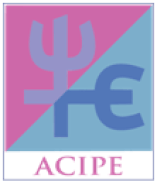
Rosario Ortega-Ruiz
University of Cordoba
The moral dimension in the phenomenon of bullying.
Participants: Ana Bravo Castillo, Antonio Cabrera Vázquez, Antonio Camacho López, Paula García Carrera
Bullying, both in its direct or face-to-face form (bullying) and through digital devices (cyberbullying), involves the deliberate and repeated use of the social power of one/s with respect to another/s with the intention of causing harm. It is this intentionality, by undermining the well-being of others that has the greatest impact on coexistence, which makes it important to detect, intervene and eliminate the phenomenon. This behaviour has a moral dimension that we have been highlighting through scientific work, and which, however, is not sufficiently addressed in educational plans and daily practices. The symposium represents a commitment to an innovative theoretical and methodological perspective, which seeks to highlight the socio-moral mechanisms that can influence an individual to unjustly assault another, while others remain impassive in the face of the humiliation of a colleague. Four research studies are presented that examine the role of motivation, emotion, courage and moral disengagement impact on peer aggression and peer defence behaviours. The results are discussed in terms of the relevance of paying attention to the complex interactive dynamics that arise in bullying and cyberbullying phenomena and the relevance of the research presented for the design of preventive programmes that are in line with advances in the understanding of the psychosocial and group cues of relationships among schoolchildren.
Rosario Ortega Ruiz, Professor of Psychology, is currently Emeritus Professor at the University of Cordoba and director of the Laboratory of Studies on Coexistence and Prevention of Violence (www.laecovi.com). She has a research career of more than 30 years working on interpersonal relationships and development of social, emotional and moral competence, as well as on children's play and social and moral cognition. In the last twenty-five years she has researched on unjustified aggression, school violence, bullying, cyberbullying and adolescent and youth courtship and its risk of nesting violence, becoming psychogenesis of gender violence. With more than one hundred scientific articles and more than fifteen books published, he dedicates his academic activity to the training of young researchers, as well as to the prevention, through psychoeducational intervention models based on scientific evidence, of school and youth violence. He has supervised more than thirty doctoral theses, most of them with international mention and excellent qualifications. In 2005, under his direction, the Dept. of Psychology was created and in 2008 the research Master's and Doctoral studies were initiated (quality mention from ANECA-2008). His international work includes research and psychoeducational interventions in Latin America (Interamerican Bank of Development; UNESCO-Brazil, DIFID-UK, for the evaluation of School and Youth Violence in Nicaragua, among others). He has directed more than 15 research projects (European, international, national and regional). Her experience in science management includes two periods in the Coordinating Commission -Psychology and Education-; one period in ANECA and one period in CNEAI; one period in the current State Research Agency, coordinating the evaluation of the Ramón y Cajal, Juan de la Cierva, and Plan Nacional I+D+ i grants. She has also been coordinator of the University Teacher Training Grants, always in the areas of Psychology and Education. She has been, on several occasions, a member of the evaluation panels of projects of the National R&D&I Plan, as well as of projects and research grants of the Fundación la Caixa. She has been a member of the Evaluation Panel of the European Research Commission -ERC- panels SH4; SH3 and SH2, for the Starting Grant -StG- and the Consolidator Grant -CoG-, as well as of the research programmes of the Norwegian, Portuguese and Chilean Agencies, among others. She currently acts as an evaluator on panels of the European Science Foundation, and collaborates with the FECyT. She is a member of the Board of Directors of the Association for Scientific Research in Educational Psychology -ACIPE; Associate Editor of Educational Psychology: https://journals.copmadrid.org/psed and Co-director of Psychology Society and Education http://ojs.ual.es/ojs/index.php/psye.





